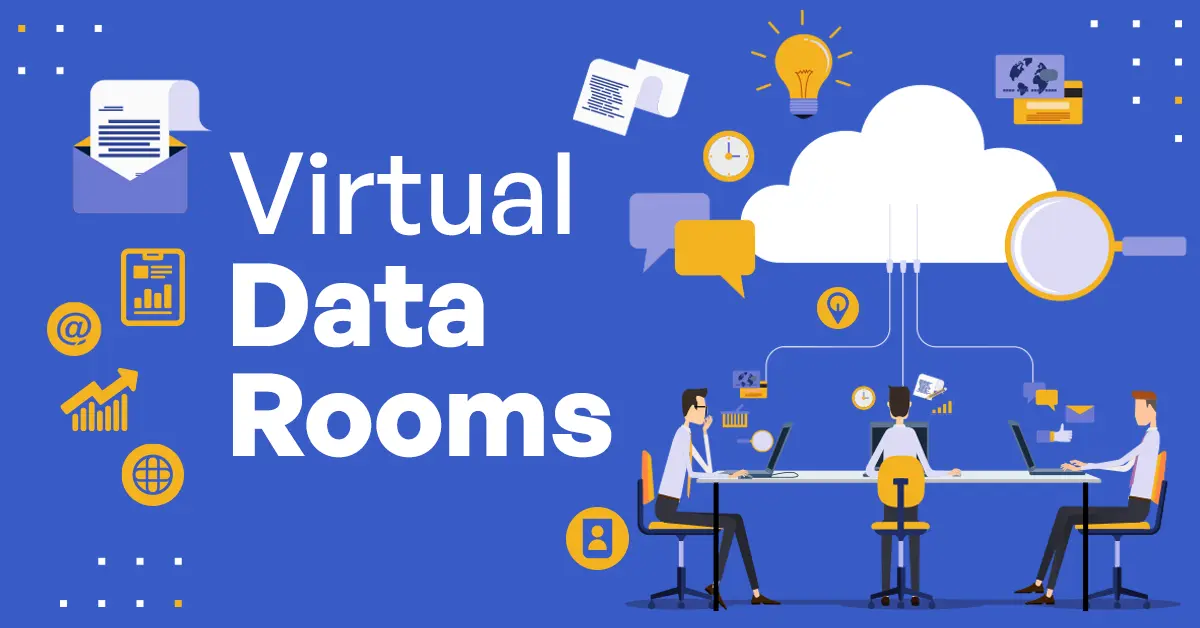Virtual data rooms have become an integral part of business processes, transforming the way confidential data is handled. Data room pricing in Canada, like in other countries, is becoming an increasingly discussed topic as businesses and organizations seek optimal solutions for securing and efficiently managing their information.
Definition of the Term
What is a data room? A VDR, or Virtual Data Room, is a secure online file repository used for business, legal transactions, or legal proceedings. These rooms are characterized by their connection to a central server and an extranet, which is an internet connection with controlled access.
They employ secure user logins provided by the respective controlling provider or authority responsible for enabling or disabling secure access at any time. VDRs enable timely access to documents for regulatory authorities and investors. At the current rate and efficiency of document retrieval, a virtual data room M&A transaction can pay for itself within a single deal.
Key Features of Using a Virtual Data Room
In 2023, interest in virtual data rooms is growing. Therefore, we invite you to familiarize yourself with their advantages.
Enhanced Security
Security is the primary focus of virtual data rooms. They are specifically designed to securely store and share a company’s confidential information. These rooms come equipped with robust tools that prevent unauthorized access. Two-factor authentication is used for user access to verify legitimacy. Data room software includes access rights management, allowing precise control over who can access documents and their editing permissions.
Collaborative Work Online
Leading virtual data room providers facilitate remote collaboration among different parties involved in a transaction. Users can access the virtual data room from both computers and mobile devices, even while on the go. Even if a user is not registered, they can create a special public link to access documents they need to view securely.
Efficiency
Virtual data rooms enhance efficiency by simplifying complex processes, such as due diligence and fundraising. They provide a secure environment for exchanging confidential data, making it easier for companies to share important documents with potential investors and interested parties.
Cost Savings
The use of virtual data rooms is cost-effective for businesses, especially when compared to traditional physical data storage facilities. Virtual data rooms eliminate the need for physical document storage and courier services, saving companies time and resources that were previously spent on travel, accommodations, and paper procurement.
File Management
Virtual data rooms provide tools for organizing and managing documents, making it easier to find crucial information and providing quick access to it. For instance, bulk uploading functionality allows you to transfer large files with a single click. Virtual data rooms also offer the ability to customize document permissions, track user actions, and generate reports, simplifying document management and monitoring.
Compliance with Standards
The use of electronic data rooms can effectively support your organization in complying with standards and regulations by providing a secure environment for storing and sharing confidential information. They also allow you to track compliance requirements, control user access, create event logs, maintain version control, and configure settings in accordance with regulatory norms.
Backups
There are several methods for data backup:
- Virtual data rooms typically distribute data across various locations, often in different geographical regions, to ensure data preservation in the event of one storage point failure.
- These rooms can be configured to create automatic, regular data backups, such as daily or weekly backups, to reduce the likelihood of data loss.
- Virtual data room service providers frequently have plans for disaster recovery to ensure data recovery in case of system failures, natural disasters, and other emergencies.
To select the most suitable data room services for your organization, consider the following steps:
- Identify Your Needs: Determine how a virtual data room for startups or your business can meet your requirements, and which features are most essential.
- Budget: Assess your budget, considering factors like storage size, the total number of participants, security level, the provider’s brand, and support requirements, as these factors can affect the cost.
- Take a Test Drive: When working with a trial product, thoroughly assess the user interface and familiarize yourself with all the nuances to avoid issues in the future.
Initially, VDRs were primarily used by lawyers during client meetings. Today, this tool is actively utilized not only by legal professionals but also by a wide range of businesspeople, lawyers, and accountants. VDRs have become a popular and cost-effective means of viewing documents without the need for them in physical form or even organizing physical meetings.
